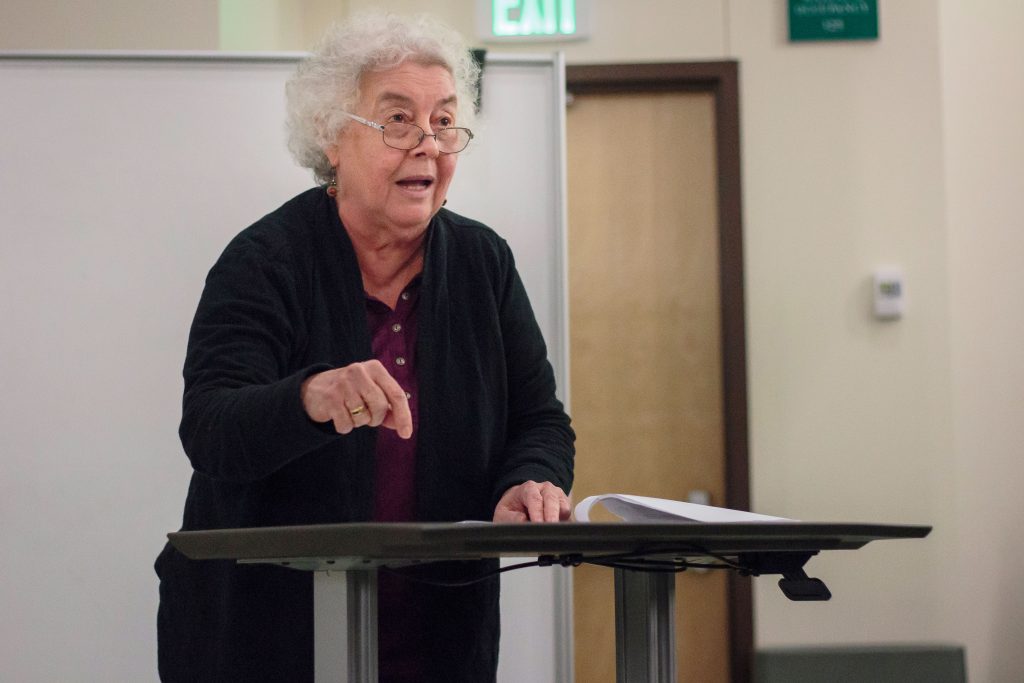
Following the destruction of Hurricanes Irma and Maria, Hurricane and Climate Change: The Social Construction of Disaster and the Politics of Disaster Relief explored the political nature of addressing the aftermath of natural disasters.
The forum, hosted by the sociology department on Tuesday, featured various speakers from professors in the sociology department at Binghamton University.
Michael West, professor and chair of the sociology department at BU, said the forum was assembled in an effort to show solidarity with people who are suffering in the greater Caribbean area in the devastating aftermath of hurricanes Irma and Maria.
The event began with a presentation by Molly Patterson, assistant professor of geology at BU. Patterson’s talk focused on dispelling misconceptions about climate change including the myth that current carbon dioxide levels in the atmosphere, which Patterson said had not been seen in the last 800,000 years, are part of a normal climate cycle.
The speakers also discussed the deficit of credible news and information about the well-being of the people in Puerto Rico outside of anecdotal reports. Communications infrastructure on the island remains nonfunctional two weeks after Hurricane Maria made landfall.
Kelvin Santiago-Valles, associate professor of sociology at BU, expressed particular concern for the situation of the elderly as well as the national water supply. Leaking toxic waste dumps in Puerto Rico in conjunction with large pools of stagnant water could have serious long-term consequences, he said.
“In terms of industrial waste, cancer rates are going to start going through the roof in the next 15 years,” Santiago-Valles said.
Much of the forum focused on the social and political systems obstructing relief efforts in the Caribbean, particularly Puerto Rico. Concern with the militarization of aid relief, such as the deployment of the U.S. military to Puerto Rico in order to disperse aid, was a recurring theme. This militarization negatively affects the efforts of grass-roots organizers, according to Santiago-Valles and others.
Gladys Jiménez-Muñoz, associate professor and director of undergraduate studies in sociology at BU, is Puerto Rican, and spoke about how the economy in the country has hindered the prosperity of Puerto Ricans.
“We have been strangled, repressed, oppressed by the financial sector,” Jiménez-Muñoz said. “Puerto Ricans can’t breathe.”
The final half hour of the forum was largely devoted to a discussion about the most effective ways for students to engage in relief efforts. One point that was reiterated was the importance of donating to a reputable charity with a verifiable legacy of meaningful outreach. Jimenez encouraged any students who aren’t sure how best to donate to contact her for a list of trustworthy organizations.
Jermel McClure, Jr., president of the Student Association (SA) at Binghamton University, detailed the SA’s plans to organize fundraisers in the coming month with a goal of raising $20,000 in order to utilize the potential of mobilizing a community as large as Binghamton’s student body. At present, all funds raised are slated for donation to UNICEF. McClure said that students can get involved by making direct donations at the SA office, or by getting involved with fundraisers hosted by student groups.


